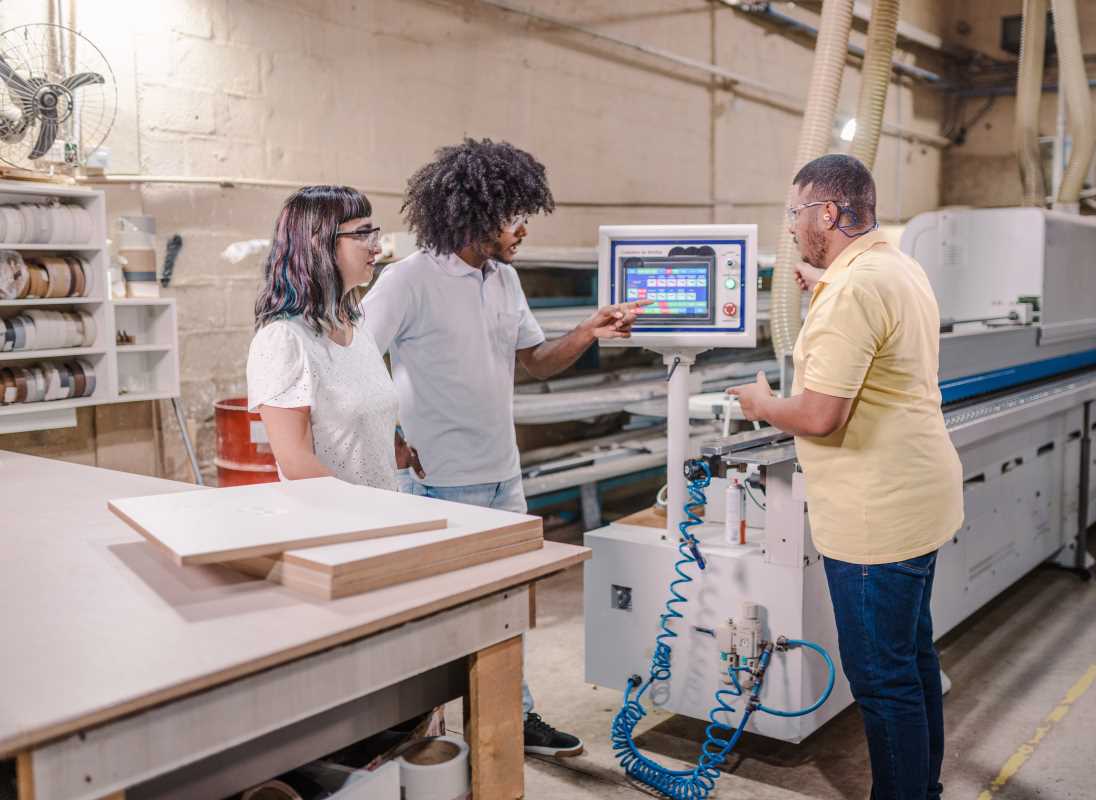Are you feeling stuck in your current job? Do you dream of doing something completely different but feel like it’s too late to start over? The idea of going back to school for another four-year degree can be daunting, especially when you have bills to pay and a life to live. It can feel like you’re trapped on a career path you didn’t choose or that no longer brings you satisfaction. But what if there was a faster, more direct, and more affordable way to pivot into a new and exciting career? There is, and it’s called vocational training. Vocational schools, also known as trade schools or technical colleges, offer focused, hands-on programs designed to get you job-ready in a matter of months, not years. For career changers, this practical and efficient approach to education can be the perfect bridge to a more fulfilling professional life.
What is Vocational Training?
Before we dive into why it's so great for career changers, let's clarify what vocational training actually is. Unlike a traditional four-year university that provides a broad education with a mix of general studies and major-specific courses, a vocational school cuts right to the chase. These programs are laser-focused on teaching you the specific, practical skills you need to do a particular job.
If you want to become an electrician, you’ll learn how to wire a house. If you want to be a dental hygienist, you’ll learn how to clean teeth and take x-rays. If you want to become a web developer, you’ll learn how to code and build websites. The curriculum is designed with one goal in mind: to make you a competent, hirable employee in a skilled profession. The emphasis is on "doing," not just on theory. Classrooms often look like real-world work environments, with students practicing on the same tools and equipment they will use on the job.
The Speed Advantage
For someone looking to change careers, time is often the biggest obstacle. You can't afford to spend four years out of the workforce or juggling a full-time job with a demanding, multi-year degree program. This is where vocational training truly shines. Most vocational programs are designed to be completed quickly. Certificate programs can take anywhere from a few weeks to a year, while an associate's degree from a technical college typically takes two years.
This accelerated timeline means you can transition into your new career much faster. Imagine being ready for a brand-new job in a completely different industry in less than a year. This speed minimizes the time you spend in career limbo and gets you earning a salary in your new field as quickly as possible. This makes the entire process of changing careers feel much more manageable and less risky. Instead of a long, uncertain journey, vocational training offers a clear, direct, and efficient path to your goal.
Learn by Doing
Many people who feel unfulfilled in their office jobs are craving work that is more tangible and hands-on. They are tired of sitting in meetings and writing emails and want to create, build, or fix things. Vocational training is built around this exact principle of kinesthetic learning, or learning by doing.
From day one, you are actively engaged in the work of your chosen profession. Automotive technology students work on actual cars in a garage. Culinary students cook in a professional-grade kitchen. Welding students practice their craft in a fully equipped welding shop. This hands-on approach has several benefits. First, it’s a much more engaging and effective way to learn for many people. Second, it builds confidence. You’re not just memorizing facts from a book; you are developing real, tangible skills and seeing the results of your work immediately. Third, it makes you incredibly valuable to employers. When you graduate, you don’t just have a piece of paper; you have practical experience and can contribute to the team from your very first day on the job.
A Smart Financial Choice
Let’s talk about one of the most stressful parts of going back to school: the cost. A four-year degree from a private university can cost hundreds of thousands of dollars, leaving students with a mountain of debt. For a career changer who may have a mortgage, a family, and other financial responsibilities, taking on that kind of debt is often impossible.
Vocational training is a fraction of the cost. Because the programs are shorter and more focused, tuition is significantly lower. Many programs at public community and technical colleges are incredibly affordable. This financial accessibility makes changing careers a realistic possibility instead of a financial fantasy. When you combine the lower upfront cost with the fact that you'll be back in the workforce and earning money much sooner, vocational training emerges as an incredibly smart financial investment in your future.
In-Demand Fields with Great Pay
A common misconception about vocational training is that it only leads to low-paying jobs. This could not be further from the truth. Many of the careers you can train for at a vocational school are in high-demand, high-growth sectors of the economy and offer excellent salaries.
Here are just a few examples of popular and lucrative vocational career paths:
- Healthcare: Programs for dental hygienists, respiratory therapists, radiologic technologists, and licensed practical nurses (LPNs) can be completed in two years or less and lead to stable, well-paying careers in the booming healthcare industry.
- Skilled Trades: There is a massive shortage of skilled tradespeople in the United States. Electricians, plumbers, welders, and HVAC technicians are in high demand and can earn fantastic incomes. Many go on to start their own successful businesses.
- Information Technology: You don't need a computer science degree to get a great job in tech. Vocational programs in cybersecurity, network administration, and web development can get you certified and hired as a tech professional in under a year.
- Culinary Arts: For those with a passion for food, a culinary arts program can provide the skills needed to work as a chef in a top restaurant, a pastry artist, or a catering manager.
 (Image via
(Image via





